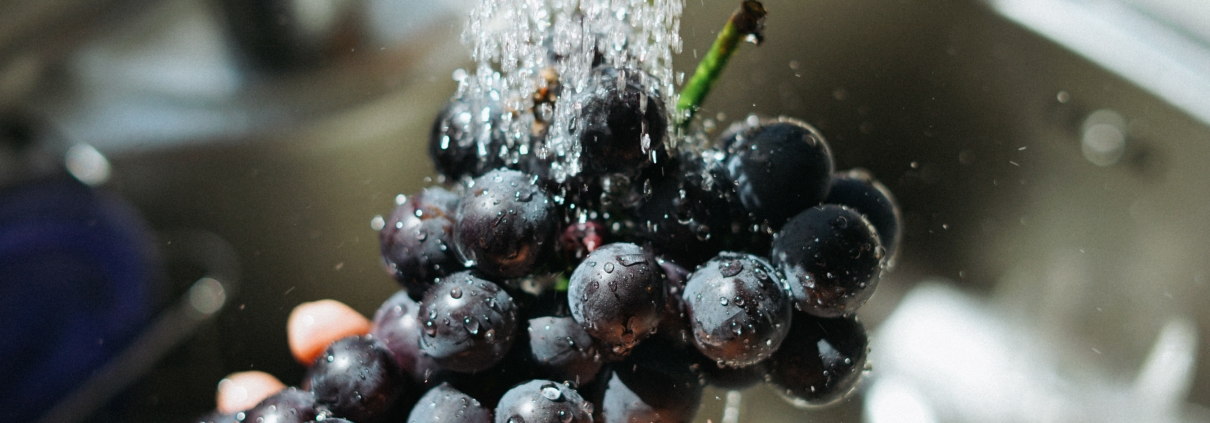A Fence or an Ambulance – You choose!
By Bill Adler, MPH, RS
Technical Food Safety Consultant
A Fence on the Cliff, or an Ambulance in the Valley – a Poem by Joseph Mailns.
The origin of this poem goes back to 1895 and was originally titled “An Ambulance Down in the Valley.” I’ll let our readers look it up and enjoy their find.
When I worked in public health, I had a supervisor who had this poem taped to his file cabinet. It served to remind everyone that what we did, didn’t get headlines or was even appreciated. But it did perform the function of preventing something awful, instead of wringing hands (or necks) when the system failed, and we had sick people, hospitalizations, or even deaths due to hemolytic uremic syndrome—a side effect of E. coli.
If you’ve read enough of my pieces, you’ll know we’re all about prevention. Putting a fence on the cliff is far better than picking up bodies in the valley. Washing fruits and vegetables is an easy way to prevent the consumption of E. coli, Listeria, Salmonella, dirt containing many things, wax, and pesticides. That list goes on and on. Granted, it is not as traumatizing as making a plea on Facebook to fund a hospital stay or an entry in the Christmas newsletter talking about how awful it was to watch the kids trying to recover from something. But, of course, cleaning produce isn’t exciting at all. It’s hardly worth a footnote. But there is enough drama in our lives as it is. Having to watch our kids ‘praying at the porcelain altar’ shouldn’t have to be one of them.
Now, let’s talk a little about bacteria.
The Life’s Pure Balance Fruit and Veggie Wash removes a lot of what’s on the outside. Enough to make dirty produce into a safe item to eat. But it doesn’t sterilize it. NO fruit and veggie wash does that. Sterilization comes from cooking the daylights out of something to the point where nothing can live on or in it. Milk pasteurization doesn’t kill everything. Oven cooking at 450 deg F doesn’t either. A lot also depends on the immune systems of the people doing the consuming. However, you can wash off or cook food to the point where our bodies no longer ‘see’ or experience the bacteria as a threat. Size does make a difference, and in this case, size refers to the number of bacteria per gram of food we consume.
Medical studies have demonstrated just how much Salmonella it takes to make us sick. If we’re talking about a few hundred per gram of food, our bodies don’t seem to care. This dose is too small to cause a problem with Salmonella, no matter how old or young we are. But, if we’re talking a million or more to a gram of food, you better have the toilet paper ready. Shigella, on the other hand, only takes 100 organisms per gram of food. This is a bacterial disease investigators see too much of in daycare settings in Minnesota. It’s probably a national phenomenon, though many states don’t have as rigorous a disease investigative program as we have here.
Prevention is easier to stomach. We do it all the time. Kids today wear bicycle helmets to avoid ER visits. We wear seatbelts to be able to walk away from accidents that might kill us. Tobacco use has been curtailed because nobody likes premature deaths due to various cancers linked to tobacco exposure. Everyone I know is on a diet, presumably to live longer and get into their skinny clothes. Farm equipment has built-in guards to keep pant legs from getting wrapped up in the PTO mechanisms. OSHA requires face shields, goggles, and respirators/masks for working around flying grit from metal grinding jobs. Prevention isn’t just about what we eat. We accept ‘prevention’ mechanisms because we know it’s for our good to do so.
In the event you’ve missed our message, here it is:
- Properly washing fruits and vegetables with Life’s Pure Balance Fruit and Vegetable Wash concentrate makes them taste better and is safer to boot!
- Use a teaspoon of the concentrate in a gallon of water
- Soak your fruits and veggies in it for a couple of minutes
- Add a quick rinse under the tap or in a bowl of water
- Enjoy!
In a nutshell, you can prevent the need for an ambulance in the valley by putting your fence on the cliff. It’s not as glamorous or awful or giving you a story to tell, but it does give you better-tasting produce that is safer to eat. The bottom line: Wash your produce. It is the prevention that’s keeping you from needing an ambulance.
Bill Adler is an expert in food safety, food-borne illnesses, and the foodservice inspection industry. He has conducted training for the Center for Disease Control and Prevention (CDC), teaching local, state, and federal disease investigators as well as working with laboratory specialists and epidemiologists. In addition, Bill has worked extensively with the Minnesota Department of Health (MDH) to perform food service inspections and train local and state public health employees.



